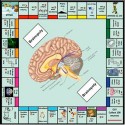Have you ever had an experience like this: you’re surrounded by many people and yet you feel very alone. In fact, you might have even attempted to voice how you felt to someone else only to be shamed for feeling this way, “you shouldn’t feel lonely, look at all the people around you,” or better yet “other people have it much worse than you, you should be grateful for what you have.”
Continue reading Lonely in the crowd: the power of connection in fighting the depression blues





